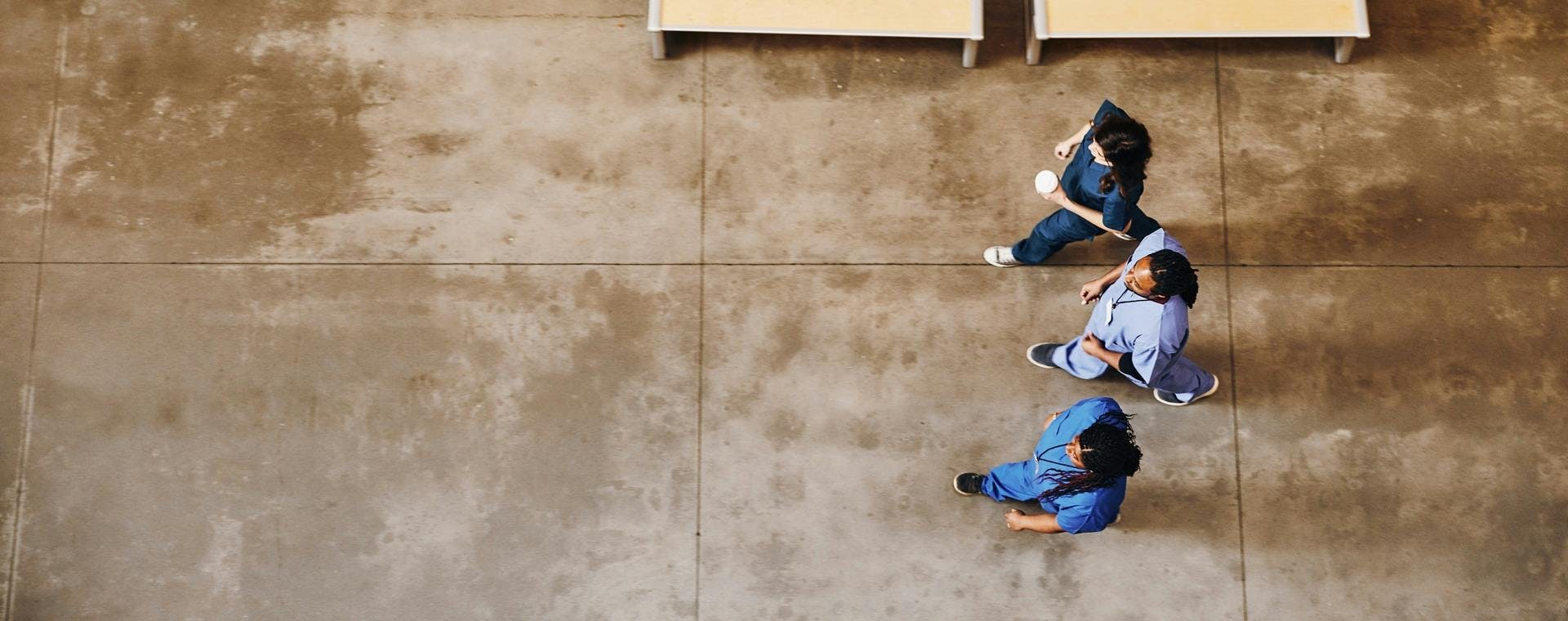Midwife negligence claims

The birth of your child should always be a joyful occasion, and the care provided by your midwife plays a vital role in this. If a midwife fails to provide the quality of care, guidance and support that you and your baby deserve, it can lead to serious or even life-changing injuries.
If you've been harmed by a midwife's negligence and are seeking justice, get in touch with Switalskis. Our experienced team of medical negligence solicitors are here to help you claim the compensation you deserve. By making a midwife negligence claim, you can secure financial support for your whole family, and make sure that those responsible for your negligent care are held accountable.
No matter what your circumstances may be, Switalskis is here for you. We support families with compassion, dedication and unparalleled expertise, offering a beacon of hope and assurance for those navigating the aftermath of a traumatic situation.
Speak to the midwife negligence experts at Switalskis to find out more about how we can help.
Give us a call on 0800 1380 458, or contact us through our website. We'll put you in touch with an expert midwife negligence lawyer who can help you figure out the best way forward.

Experiencing a birth injury will always be extremely distressing, but if it's suspected that midwife negligence might have played a part, the emotional toll can be even more significant. We know that you'll be dealing with a lot of unanswered questions and feelings of vulnerability, which is why we pledge to act as a pillar of support during such times.
Here's how Switalskis can support you with midwife negligence cases:
You can always put your full trust in Switalskis to provide educated and practical advice on medical negligence. Our team of midwife negligence solicitors includes legal experts accredited by the Law Society and AvMA (Action Against Medical Accidents) , underlining their industry-leading expertise in this area of law.
If you've been impacted by negligence in midwifery practice, let Switalskis be your trusted partner in navigating the aftermath. Speak with a midwife negligence lawyer from Switalskis today to understand how we can support and guide you.
When we think of childbirth, midwives often stand out as compassionate, skilled professionals who guide mothers through the challenges of pregnancy, labour and postnatal recovery. As in any profession, there are times when the standard of care may fall short. However, it's important to be able to understand the difference between an unfortunate outcome and negligence.
Midwife negligence refers to situations where a midwife fails to provide the standard of care expected of their position, leading to unnecessary harm or injury to the mother or baby. Every healthcare professional, including midwives, owes a duty of care to their patients. It is classed as negligence when this duty isn't upheld, and the care you receive falls below the minimum acceptable standard for a competent midwife.
Examples of midwife negligence aren't necessarily restricted to the act of childbirth itself. It can also happen during antenatal appointments, labour, delivery and postnatal care. If you or your baby have suffered harm at any of these stages, and this outcome can be directly linked to a midwife's actions or neglect, then you may have a case to claim compensation.
At Switalskis, we're here to help families understand if what they've experienced falls into this category. Get in touch with us, and we'll examine your case and advise you on whether you've been the victim of medical negligence. If you have, we can also support you to claim compensation.
Most midwives provide exceptional care, but unfortunately, there are times when the standard of care falls below the expected level. Here are some examples of negligence in midwifery that can lead to birth injury:
At Switalskis, we delve into the specifics of each case, and we can advise you on whether your situation can be classed as medical negligence or not.
Midwives play a pivotal role not just in the delivery room, but throughout pregnancy and even after birth. They have a responsibility to care for mothers and their babies in all of the following situations:
If you've suffered due to midwife neglect at any of these stages, you may have grounds to make a midwife negligence compensation claim.
When midwife negligence happens, the consequences can be severe for both the newborn and the mother. Here are some examples of how negligent care can lead to babies suffering from potentially serious health problems and birth defects:
In addition, poor midwifery care can impact the mother's health in various ways:
If any of this has happened to you, it can damage your trust in medical professionals, and potentially burden you with significant costs related to additional medical treatments, therapy or time off work.
Starting a midwife negligence compensation claim might feel overwhelming, but we’re dedicated to making it as straightforward as possible for you. Let’s walk you through the general process of how the midwife negligence claims process works:
In this first meeting, we’ll speak to you about the unique aspects of your traumatic birth. We’ll need to understand both the mother’s and baby’s conditions, and/or partner’s condition, the events leading up to the traumatic birth, and the profound impact it’s had on your lives. This consultation will help us form a clear picture of your situation and highlight what we need to investigate further.
After this, we’ll investigate the circumstances surrounding the birth and medical care that lead to the traumatic experience. This will involve obtaining and reviewing medical records, consulting with and instructing independent medical experts specialising in birth trauma, and investigating the care provided. Our aim will be to prove that the traumatic birth was caused by medical negligence, and then to start to work out how much compensation you might be entitled to receive.
Once we gather enough evidence, we’ll send a letter of claim to the healthcare professionals involved. This letter will outline the full details of the birth trauma compensation claim and the evidence supporting it. The defendant will then generally have four months to respond, allowing them time to conduct their investigation and decide whether to accept liability or not. This can often be longer, particularly with birth injury claims.
After the defendant has responded, our expert birth trauma solicitors will begin negotiations. Using our extensive expertise and experience, we’ll work to establish who was at fault and secure the highest possible compensation amount for you and your family.
Most claims are settled through negotiation, resulting in a fair settlement without the need to go to court. However, we often have to issue court proceedings to secure a result. We may need to take your claim to trial. If this happens, we’ll be with you every step of the way, providing the full support and representation you need.
If your claim is successful, you’ll receive compensation. The amount will be calculated to reflect the pain and suffering you’ve been through, and any support you have used or will need in the future to overcome the trauma you experienced.
You can expect clear communication from us at every step, and we’ll make sure you’re equipped with the knowledge and guidance you need.

Understanding time limits is an important aspect of any legal claim, and it's no different with midwife negligence. The standard rule is that you have three years from the date of the negligence, or from the date you first became aware of the negligence to make a claim. This is known as the limitation period.
For claims involving children, the three-year limitation period doesn't begin until their 18th birthday. This means that a claim can be brought on behalf of a child at any time before they turn 18. They have until their 21st birthday to pursue the claim themselves, if they wish. This extended period is designed to protect the rights of the child, giving them plenty of time to seek compensation once they become an adult.
In cases where the child has sustained a brain injury that affects their mental capacity, the time limit may not apply at all. This allows a claim to be made at any point during their lifetime. Still, even with these exceptions, it's always advisable to start the legal process sooner rather than later. Evidence can become harder to gather over time, and moving ahead quickly will give you the best chance of success.
The impact of midwife negligence can vary dramatically, which is why the compensation awarded in these cases will be determined on a case-by-case basis. Several factors will be considered when calculating the amount you might receive:
It's essential to understand that each case is unique. Switalskis' expert team of dedicated midwife negligence solicitors will evaluate the specifics of your case and provide you with an estimate that reflects how much compensation you can realistically expect to claim.
We offer multiple ways of funding midwife negligence claims, making the process more accessible and less stressful for families. These include:
At Switalskis, we understand that discussing finances can be sensitive, especially during an emotionally challenging time. Our compassionate team is here to guide you through the funding options, helping you find the most suitable method for your circumstances.
On average, midwife negligence claims can take anywhere between 18 months to 3 years to conclude. However, each case is unique and several factors can influence the timescale:
It's essential to remember that while it's beneficial for claims to be settled quickly, making sure the claim is handled comprehensively and accurately is the most important thing. At Switalskis, our aim is always to achieve the very best outcome for you, with as few unnecessary delays as possible.
Contact us today and let's start your journey towards recovery together. Call us today on 0800 1380 458,or get in touch via our form.
Making a midwife negligence claim can be daunting, especially during a period that's already fraught with emotional upheaval. At Switalskis, we'll stand beside you and guide you at every turn. Here are the values that we'll bring to your case:
Both legal and medical terminology can be complicated. Our medical negligence Claims involving midwife negligence may appear overwhelming. However, with Switalskis on your side, navigating this process becomes much simpler. We take pride in translating complicated legal language into plain English, so that you're never left in the dark. Our goal is to provide clarity, answer all your concerns, and keep you informed.
Every family, every baby, and every parent has their unique story and challenges. We take the time to genuinely listen, empathising with your anxieties and providing support that acknowledges your emotional reality. To us, you're not just another case - you're a person grappling with challenging circumstances, and we're here to support you through this.
When dealing with a sensitive topic like midwife negligence, you deserve to know you're backed by the best. With Switalskis, you benefit from a blend of deep experience and a stellar record in successfully handling cases relating to midwife negligence and medical accidents. This means you can count on us to achieve the best possible outcome for you and your child.
We're passionate about justice and making sure your voice is heard loud and clear. Not only will we help you secure the compensation you deserve, but we'll also hold those responsible to account, making sure that the right lessons are learned and preventing other families from facing similar trauma.
Choosing Switalskis means choosing a partner who understands, cares and fights relentlessly for your cause.
If you suspect that you or your baby has suffered due to midwife negligence, it's essential to act swiftly and seek justice. The experts at Switalskis are ready to guide you through every step, offering knowledgeable advice, genuine empathy and committed representation.
Reach out to Switalskis now by calling 0800 138 0458 , or get in touch via our website to confidentially discuss your situation with a legal expert in midwife negligence claims.